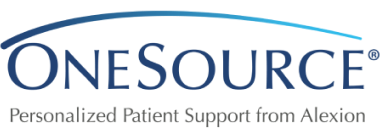-
are pregnant or plan to become pregnant. Koselugo can harm your unborn
baby
-
Females who could become pregnant and males with female partners
who could become pregnant should use effective birth control
(contraception) during treatment with Koselugo and for 1 week
after your last dose
-
Tell your healthcare provider right away if you become pregnant or
think you may be pregnant during treatment with Koselugo
-
Tell your healthcare provider right away if you become pregnant or
think you may be pregnant during treatment with Koselugo
-
Do not breastfeed during treatment with Koselugo and for 1 week
after your last dose
-
Talk to your healthcare provider about the best way to feed your
baby during this time
Tell your healthcare provider about all the medicines you take,
including prescription and over-the-counter medicines, vitamins, or herbal
supplements. Especially tell your healthcare provider if you are taking aspirin,
blood thinners, or other medicines to treat blood clots. Koselugo contains
vitamin E, which may increase your risk of bleeding.
Koselugo may cause serious side effects, including:
Heart problems.
Koselugo can lower the
amount of blood pumped by your heart, which is common
and can also be severe. Your healthcare provider will do tests before and
during treatment with Koselugo to check how well your heart is working. Tell
your healthcare provider right away if you get any of the following signs
or symptoms:
- persistent coughing or wheezing
- shortness of breath
- swelling of your ankles and feet
- tiredness
- increased heart rate
Eye problems. Koselugo can cause eye problems that can
lead to blindness. Your healthcare provider will check your vision before
and during treatment with Koselugo. Tell your healthcare provider right away
if you get any of the following signs or symptoms:
- blurred vision
- loss of vision
-
dark spots in your vision (floaters)
- other changes to your vision
Severe diarrhea. Diarrhea is common with Koselugo and can
also be severe. Tell your healthcare provider right away the first time that
you get diarrhea during treatment with Koselugo. Your healthcare provider
may give you medicine to help control your diarrhea and may tell you to drink
more fluids.
Skin rash. Skin rashes are common with Koselugo and can
also be severe. Tell your healthcare provider if you get any of the following
signs or symptoms:
-
rash that covers a large area of your body
- peeling skin
- blisters
Muscle problems (rhabdomyolysis). Muscle problems are common
with Koselugo and can also be severe. Treatment with Koselugo may increase
the level of a muscle enzyme in your blood, which may be a sign of muscle
damage. Your healthcare provider should do a blood test to check your muscle
enzyme levels before you start taking Koselugo and during treatment. Tell
your healthcare provider right away if you get any of the following signs
or symptoms:
- muscle aches or pain
- muscle spasms and weakness
- dark, reddish urine
Your healthcare provider may change your dose, temporarily stop, or
permanently ask you to stop taking Koselugo if you have any of these
side effects.
The most common side effects of Koselugo are:
- vomiting
- stomach-area pain
- nausea
- dry skin
- muscle and bone pain
- feeling of tiredness or lacking energy
- fever
- sores in your mouth
- headache
- redness around the fingernails
- itching
These are not all the possible side effects of Koselugo.


